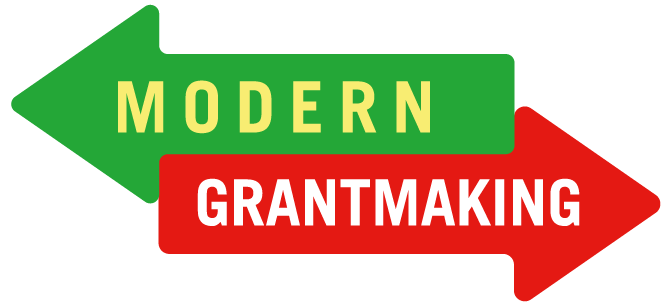
What do you do when your funder board is less up for reform than you are?
When we meet with grantmakers we often ask what challenges they're facing at the moment. One of the most common responses we get is a heavy sigh followed by, "I’m having a hard time getting the Board to support changes that would diversify both our organisation and who we support".
More often than not grantmakers tell us that they’re struggling to secure board agreement for key modernising reforms, like prioritising work that advances equity, or sharing power so that people who aren’t on the board sometimes get to make some funding decisions.
The grantmakers who have shared these stories with us are usually frustrated. Frustrated that their boards don’t seem to place much importance on the reforms that they are so passionate about. But when we dig into this problem, possible reasons as to why some boards are not so amenable to reform begin to emerge.
First, most UK foundation boards are, well, just not diverse. 2018 research for the Association of Charitable Foundations by Bayes Business School showed that 99% of UK foundation trustees are white, two-thirds are men, and three in five are aged 64 or over. By comparison the new census data released recently showed that white people make up 81.7% of the population of England and Wales: this makes 99% a very significant imbalance.
The pattern of foundation boards generally being undiverse is probably not a surprise to anyone reading this newsletter. But we shouldn’t let familiarity with the situation anaesthetize us to the real significance of the problem. Recent US research published by BoardSource shows that nonprofit boards that included people of colour were more likely to have adopted diversity, equity and inclusion practices than boards that did not include people of colour. So, there can be a link between lived experience and recognising the need for reform.
But the reluctance of funder boards to adopt some reform suggestions from their own grantmaking teams is not just down to the demographics of who is sitting around the table. Another problem we encounter is boards being reluctant to make changes that they feel they just haven’t had any time to digest or think about. This isn’t that surprising when it’s typical for foundation boards to meet for a few hours between four and eight times a year. These meetings are often jam-packed with things like funding decisions and financial reporting leaving little time to discuss anything else, especially 'Big Topics' like sharing grantmaking power with people who aren’t currently in the board room.
So if you’re a grantmaker in a funding organisation feeling frustrated with your board, just take a moment to consider how much time you’ve personally dedicated to educating yourself about the issues that animate you. It may be less than you’d like but we’d wager it’s still a whole more time than the trustees have put into the same thing. While we’re certainly not making excuses for anyone here, but we are suggesting that the design and rhythm of typical board meetings can be a barrier to enabling ongoing trustee learning and development, and so to the making of key decisions to change.
Now, as much as we enjoy a good old moan (we are British, after all), we’re much more keen to share resources that exist to help improve foundation board diversity and offer ideas about how you could switch up your board agenda and schedule to build a better shared understanding between trustees and team members.
Here’s just a few suggestions:
Reach Volunteering, in collaboration with Getting on Board, Association of Chairs and Small Charities Coalition has created The Trustee Recruitment Cycle that provides guidance, tools and inspiration for boards to develop inclusive practices.
Finally, Vu Le (of NonProftAF fame) has written a blog on ‘The real reasons many organizations are still unable to diversify their board, staff, fundraising committees’. In it, he lists seven barriers that may put diverse people off from applying for roles, such as a lack of public indications that your organisation is serious about equity. It definitely has a US-centric lens, but is, we think, it is essential reading nonetheless.
